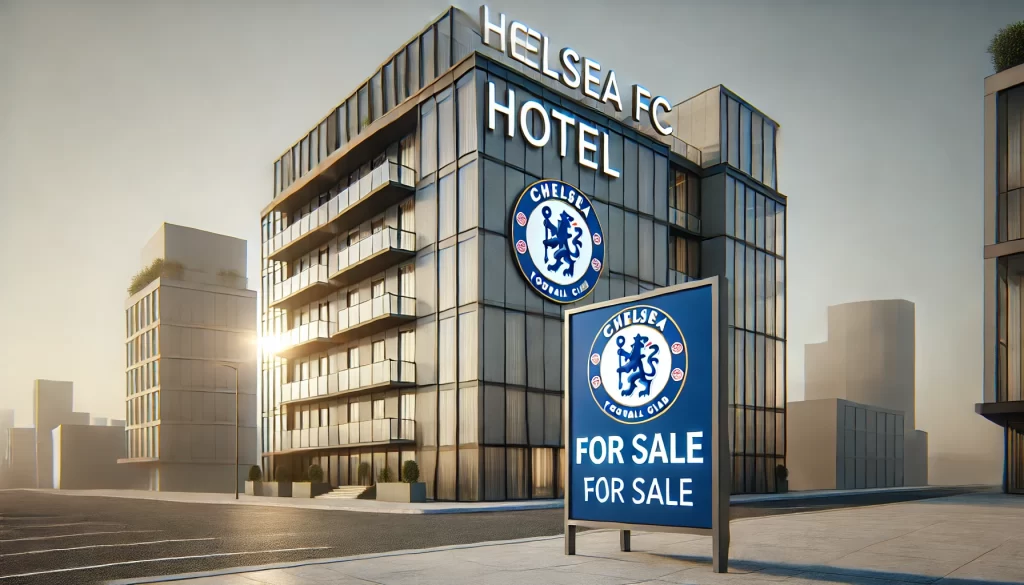
Chelsea’s £76m Hotel Sale Approved to Avoid Premier League PSR Breach
In a significant financial maneuver, Chelsea Football Club has successfully sold two hotels for an impressive £76 million. This decision comes as part of an effort to avoid breaching the Premier League’s Profitability and Sustainability Regulations (PSR). The move has been sanctioned by the Premier League, marking a crucial step for the club in maintaining financial compliance.
Backdrop of Financial Fair Play
The Premier League’s stringent Profitability and Sustainability Regulations (PSR) are designed to ensure that clubs operate within their means, promoting financial fair play and safeguarding the long-term health of clubs. Compliance requires clubs to balance their expenses, including player salaries, transfer fees, and other operational costs, with their revenues.
With an ever-increasing expenditure on player acquisitions and wages, even financially robust clubs like Chelsea face challenges in adhering to these regulations. Non-compliance could result in severe penalties, including transfer bans, fines, and point deductions.
The Asset Sale: A Strategic Decision
In anticipation of potential financial imbalances, Chelsea opted to bolster their financial statements by liquidating some of their non-core assets. This led to the decision to sell two prominent hotels, which, while beneficial, were deemed non-essential for the club’s core footballing ambitions.
- The Chelsea Village Hotel
- The Millennium & Copthorne Hotel at Stamford Bridge
These hotels, part of the club’s property portfolio, had been generating steady income, but their sale was seen as a more immediate solution to satisfy the PSR requirements. The combined sale brought in a substantial £76 million, a significant sum that will be reinvested strategically by the club’s management.
Approval by the Premier League
The Premier League’s approval of this sale marks a vote of confidence in Chelsea’s financial strategy. The league’s rigorous scrutiny ensured that the transaction aligns with the broader principles of financial fair play and does not compromise the integrity of competition.
Speaking on the matter, a Premier League spokesperson remarked, “We have thoroughly reviewed the sale and found it compliant with the regulations governing the financial conduct of our clubs. It serves as a reminder that asset management is crucial in balancing books and maintaining the sustainability of clubs.”
Impact on Chelsea’s Financial Health
The infusion of £76 million from the sale is expected to significantly bolster Chelsea’s balance sheet. This windfall will likely mitigate some pressures on the club’s finances, especially given the hefty investment in the transfer market over recent seasons.
Investments in Transfers
Chelsea has been notably active in the transfer market, with significant acquisitions and renewals contributing to their hefty wage bill. Notwithstanding the pressures, these investments are seen as necessary to maintain the club’s competitiveness in both domestic and European competitions. Such expenses underline the importance of finding alternative revenue sources or financial avenues to balance the books effectively, without compromising on-field performance.
Long-Term Strategic Outlook
Beyond the immediate financial relief, the sale of the hotels represents a broader strategic pivot for Chelsea. The club is arguably refocusing its resources more directly towards its core mission: football excellence and global competitiveness. By shedding non-core assets, Chelsea can streamline operations and potentially reinvest in more lucrative areas related to football and branding.
Potential Reinvestments
While the specifics of how the £76 million will be reinvested remain speculative, several potential avenues could be explored:
- Youth Academy Development: Reinforcing the investment in homegrown talent could yield long-term competitive advantages and reduce reliance on expensive transfers.
- Stadium Improvements: Enhancements to Stamford Bridge could drive more revenue through increased matchday experiences and hospitality offerings.
- Global Branding Initiatives: Strengthening the Chelsea brand globally, particularly in emerging football markets, can unlock new revenue streams.
Conclusion: A Prudent Move in Uncertain Times
The approval of Chelsea’s sale of two hotels for £76 million to avoid a breach of the Premier League’s PSR underscores the complex challenges clubs face in the modern financial landscape of football. It demonstrates Chelsea’s commitment to maintaining both compliance and competitiveness.
As the landscape of football finance continues to evolve, such strategic decisions will become increasingly vital. For Chelsea, this move not only ensures short-term financial stability but also positions the club for sustained success on and off the pitch. The broader football community will undoubtedly watch closely to see how Chelsea leverages this financial flexibility in the coming season!
